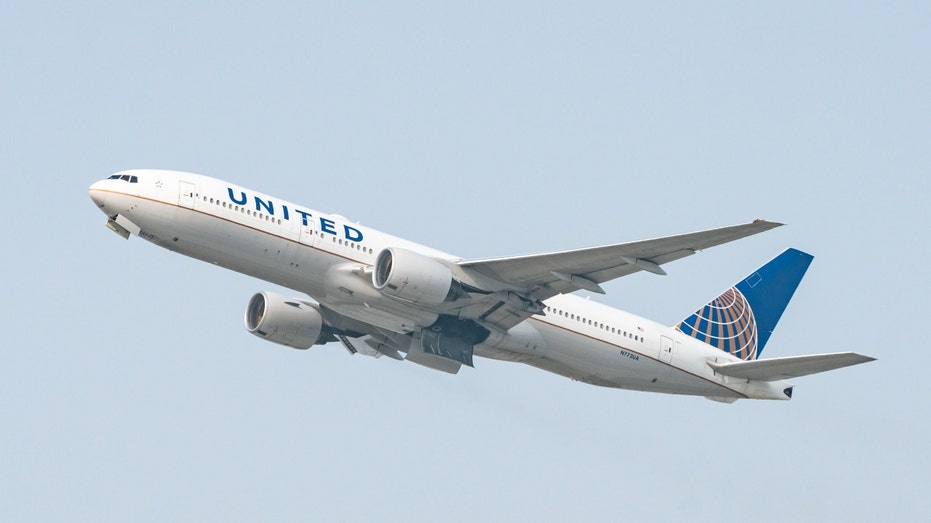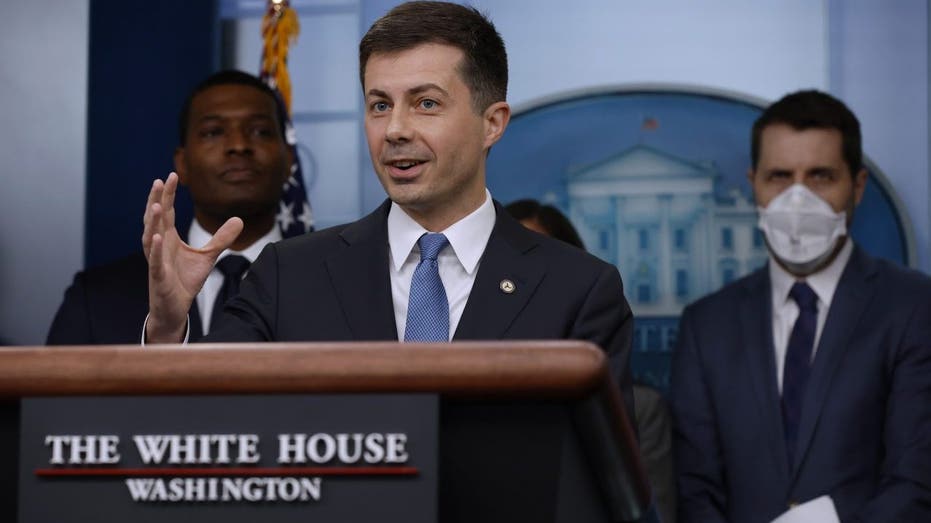Airlines, not weather, to blame for most flight cancellations, government report finds
Government report finds factors under airlines' control such as staffing shortages and maintenance issues to blame for surge in flight delays, cancellations
United Airlines cutting flights due to an air traffic controller shortage
Frontier Airlines CEO Barry Biffle says his company could ‘sidestep’ a possible recession as the demand for flights is ‘extremely robust’ with work from home and more flexibility post-pandemic.
Airlines are to blame for the recent post-pandemic surge in flight cancelations, according to findings from a new government report released Friday.
Investigators with the Government Accountability Office (GAO) said that the increase in cancelled flights recorded, as travel has bounced back from COVID-19-era lows, is mostly due to factors that airlines have control over, such as maintenance issues or staffing shortages.
The GAO report also found that airlines are taking longer to recover from disruptions caused by bad weather. Surges in cancelations in late 2021 and early 2022 lasted longer than they did before the pandemic, the GAO said.
The report comes as both airlines and government transportation officials have faced criticism for high-profile flight disruptions in recent years. Republicans on the House Transportation Committee had asked the GAO to investigate changes to the airline industry since the pandemic and whether the Federal Aviation Administration (FAA) or Department of Transportation (DOT) under Secretary Pete Buttigieg were helping to address those problems.
AMERICAN AIRLINES FLIGHT FORCED TO TURN BACK AFTER STRIKING BIRD

Travelers check American Airlines flight information screens for their flight status at O'Hare International Airport in Chicago, Wednesday, Feb. 22, 2023. (AP photo/Nam Y. Huh / AP Images)
The GAO examined flight data from January 2018 through April 2022 and interviewed several DOT and FAA officials to understand why delays and cancelations have increased.
Investigators found that flight cancelation rates in the last six months of 2021 outpaced 2018 and 2019 rates despite 14% fewer scheduled flights.
| Ticker | Security | Last | Change | Change % |
|---|---|---|---|---|
| LUV | SOUTHWEST AIRLINES CO. | 53.36 | -0.90 | -1.66% |
| UAL | UNITED AIRLINES HOLDINGS INC. | 116.20 | +0.29 | +0.25% |
| DAL | DELTA AIR LINES INC. | 75.00 | -0.35 | -0.46% |
| AAL | AMERICAN AIRLINES GROUP INC. | 14.99 | -0.25 | -1.64% |
| SAVE | NO DATA AVAILABLE | - | - | - |
| JBLU | JETBLUE AIRWAYS CORP. | 6.16 | -0.20 | -3.14% |
| ALK | ALASKA AIR GROUP INC. | 60.21 | +0.76 | +1.28% |
The GAO said that weather was the leading cause of cancelations in the two years before the pandemic, but the percentage of airline-caused cancelations began increasing in early 2021. From October through December 2021, airlines caused 60% or more of cancelations — higher that at any time in 2018 or 2019.
Delays and cancelations happened at both smaller airlines and large carriers. In 2019, Hawaiian Airlines and Alaska Airlines were the worst offenders, responsible for more than half of their respective cancelations. In late 2021, other low-fare carriers, including Allegiant Air, Spirit Airlines, JetBlue Airways and Frontier, were to blame for 60% or more of their own total cancelations, according to GAO.
‘WASTED’ DELTA PASSENGER IN FIRST CLASS ACCUSED OF FORCIBLY KISSING FLIGHT ATTENDANT: COURT DOCS

United Airlines Boeing 777-222 takes off at Los Angeles international Airport on Sept. 15, 2020, in Los Angeles. (AaronP/Bauer-Griffin/GC Images via Getty Images / Getty Images)
Southwest, Delta, American and United also saw an increased percentage of their cancelations caused by issues those airlines could control, the report found.
Staffing shortages have contributed to the problem. Although Congress provided about $54 billion for airlines to retain their employees during the pandemic, they reduced their workforce with early retirements or other incentives to lower costs.
A spokeswoman for trade group Airlines for America said the majority of cancelations this year have been caused by severe weather and air traffic control outages. About 1,300 flights were canceled in one day because of an outage in a Federal Aviation Administration safety-alerting system.
FAA WARNS OF SAFETY HAZARD FROM LEAKY FAUCETS IN BOEING 787, CALLS FOR INSPECTIONS

Transportation Secretary Pete Buttigieg (center) has faced questions over the Department of Transportation's response to a post-pandemic surge in airline cancelations and delays. (Chip Somodevilla/Getty Images / Getty Images)
"Carriers have taken responsibility for challenges within their control and continue working diligently to improve operational reliability as demand for air travel rapidly returns," said the spokeswoman, Hannah Walden. "This includes launching aggressive, successful hiring campaigns for positions across the industry and reducing schedules in response to the FAA’s staffing shortages."
CLICK HERE TO GET THE FOX BUSINESS APP
Stakeholders interviewed by the GAO said that operational challenges, including a need for additional pilots and crew, have made it harder for airlines to manage flight disruptions. Airlines have since taken corrective measures to address the problem, including hiring new staff, opening new training facilities and reducing the number of scheduled flights.
The Associated Press contributed to this report.





















